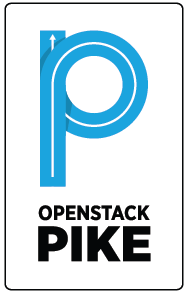The OpenStack Foundation has launched the 16th version of the eponymous open source infrastructure platform, codenamed Pike.
The release focuses on ‘composable’ infrastructure services and improved software lifecycle management. It also places more emphasis on private deployments of OpenStack delivered as-a-service - a.k.a. remotely managed private cloud - discussed at length at the OpenStack Summit in Boston in May.
Overall, OpenStack is continuing to experience strong growth, with the April 2017 user survey reporting 44 percent more deployments year-on-year, with major projects launched at China UnionPay, Paddy Power Betfair and Tencent.
New software capabilities will be demonstrated at the OpenStack Summit in Sydney in November.
A platform of choice
OpenStack is the world’s most widely deployed open source infrastructure software – powering more than a thousand private clouds running across more than five million physical CPU cores. It consists of the integration engine and software modules, or ‘projects’, designed to do different things: for example Ironic for bare metal servers, Nova for virtual machines, Cinder or Swift for storage and Neutron for networking.
The OpenStack foundation currently supports 46 official projects, with new entries added regularly, and users are free to mix and match any modules they choose.
The Pike release – named after Bostonian slang for the Massachusetts Turnpike - makes it easier to run just a handful of the most popular modules, with better integration between them. This should be especially handy for specific use cases like Network Function Virtualization, machine learning or edge computing.
The entire Pike code base has been upgraded with support for Python 3.5 to take advantage of new features and improved performance – and to prepare for the end of life of Python 2.x in 2020.
The release also thoroughly polishes the code of OpenStack Kolla – a tool used to manage and update the platform through services like Kubernetes and Ansible.
Other additions include rolling upgrade support in Ironic, ‘revert to snapshot’ functionality in Cinder, globally distributed erasure codes in Swift and new integrations for etcd v3 - a distributed key value store of choice for OpenStack deployments going forward.
“The features and upgrades that Pike brings are the lessons of experience you get from enabling thousands of public and private clouds, large and small, for seven-plus years,” said Jonathan Bryce, executive director of the OpenStack Foundation.
“The rise of composable services and simpler consumption options are part of that maturation process. Our community is now focused on eliminating future technical debt as well as growing OpenStack¹s capabilities to support ever-expanding use cases.”

